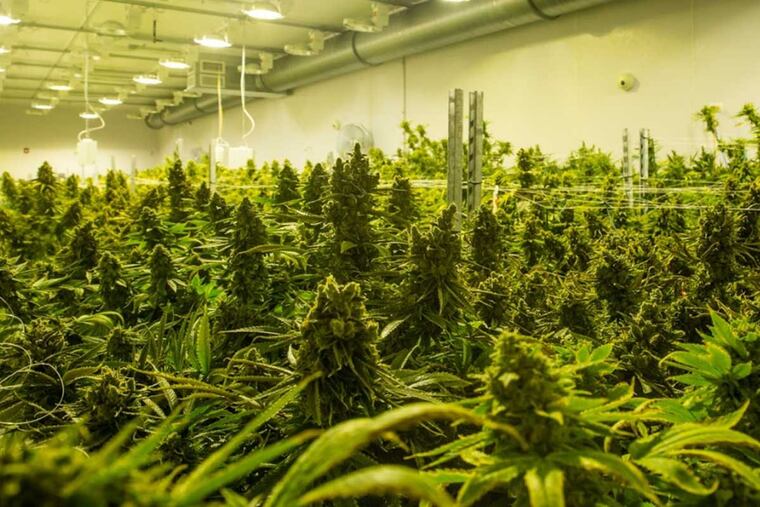Pa.'s first legal marijuana harvest this month, in shops by Valentines Day
The state has granted permits for about 50 dispensary locations. The nondescript storefronts will sell cannabis oils, vape cartridges, pills, tinctures and other solutions.

Pennsylvania's first medical marijuana will be harvested the last week of January and delivered to dispensaries by the second week of February, according to one of the state's 12 cultivators.
Products from Cresco Yeltrah, a licensed cannabis grower and processor based near Pittsburgh, will be shipped the week of Feb. 11 from the company's Brookville cultivation center to state-approved dispensaries. So far, only the Keystone Canna Remedies dispensary in Bethlehem has been approved by the Department of Health to open.
"It's coming sooner than people think," said Kent Hartley, Cresco Yeltrah's cofounder. "It will be an array from our complete product line. There'll be limited quantities because it will be our first harvest, but that's OK because there are very few dispensaries that will be open anyway."
The state has granted permits for about 50 dispensary locations. The nondescript storefronts will sell cannabis oils, vape cartridges, pills, tinctures, and other solutions. The dispensaries will not be permitted to provide smokable plant products such as joints, buds, or loose-leaf marijuana. Edible products also are forbidden in Pennsylvania.
Cresco Yeltrah's Brookville growhouse was the first to get the green light to plant a legal crop under the new state law. Immediately after the harvest, the cannabis plants will be tested and processed to have the oils extracted. After the oils are formulated into products, those will be tested again before they are packaged, Hartley said.
Patients suffering from 17 serious medical conditions are eligible to participate in the program but must receive a recommendation from a qualified doctor and apply to the state for a program ID card. Dispensaries will not allow anyone in the shops without a card.
The medical conditions covered by the Pennsylvania law: amyotrophic lateral sclerosis; autism; cancer; Crohn's disease; damage to the nervous tissue of the spinal cord with intractable spasticity; epilepsy; glaucoma; HIV/AIDS; Huntington's disease; inflammatory bowel disease; intractable seizures; multiple sclerosis; neuropathies; Parkinson's disease; post-traumatic stress disorder; severe chronic pain of neuropathic origin or intractable pain in which conventional opiate therapy is contraindicated or ineffective; and sickle cell anemia.